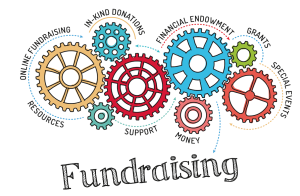As the debate and acrimony in Washington, D.C. continues regarding the absurd notion that the federal charitable deduction plays an important role in the nation’s “fiscal cliff,” voices were raised in New York City. The voices were of hope and charity.
The 12.12.12 Concert For Sandy Relief brought in millions of dollars from across the globe. The event raised $37 million even before the telephone lines began to ring from people who could afford to give a few bucks. The $37 million was accumulated via ticket sales, from sponsors such as Chase, GE and Samsung, and from corporate executives who knew it was time to get something done.
Donors can be confident the Robin Hood Foundation will use the money wisely and it will help relieve some of the immediate suffering and longer-range issues.
But, donations to Sandy relief are far behind giving after the terrorist attacks of September 11, the 2005 South Pacific tsunami, Hurricane Katrina and the 2010 Haiti earthquake.
The Center on Philanthropy (CoP) in Indianapolis, Ind., estimated that after three weeks, fundraising for Sandy, which rampaged up the East Coast impacting 65 million people in 11 states, stood at $219 million. Fundraising for the 2005 tsunami was $610 million after the same time period. Haiti received $752 million. Fundraising for September 11 was $876 million, and $1.3 billion for Katrina.
Four weeks out from Sandy, CoP’s estimate of the fundraising total was $244 million. The bulk of that went to the American Red Cross.
There’s an old accounting joke that one plus one can equal anything you wish. It really only equals two – every time. The math is simple. This argument regarding the charitable deduction can be solved with a combination of simple math and observations if officials would get their heads out of their spreadsheets and use a little cause and effect reasoning.
Advocacy organization Independent Sector has statistics that its executives trot out, showing the benefit of a $350 tax break is actually $1,000. They have argued that itemizing households accounted for 70 percent of the $229 billion in charitable donations in 2008 and that 2 percent of taxpayers in the top bracket were responsible for 33 percent of all charitable giving that year.
Here’s the kicker: Only one-third of tax filers, the wealthiest Americans, itemized deductions that year. Congressional and White House officials argue that capping the deduction for the wealthiest Americans won’t really hurt that much, after all, charity at the highest levels is a competition for names on buildings and board seats at the opera.
The government officials probably didn’t read a Bank of America study that showed 67 percent of wealthy households responded that they would somewhat or dramatically decrease charitable contributions if they received zero income tax deductions for their donations.
Government officials argue that the $16-trillion debt and $1.3-trillion budget shortfall has to be made up somewhere. They should start with cutting a budget few of them have probably even read.
The loud rancor of the debates has already affected how people spend, share and shelter their assets. Many more affluent Americans are already making early decisions around their income, deductions and possible tax implication now. That must also be affecting Sandy donations. That’s the simple math part.
The observation element is that giving to Sandy relief is lagging because those 1 percenters always being singled out as villains are spending their money putting their lives back together. It is estimated that 600,000 homes were damaged or destroyed across New York, New Jersey and Connecticut.
Those rich guys working on Wall Street or with information technology or investing in real estate along the east coast do not have the cash to donate as they usually do. They are who is missing from the fundraising effort. If the deduction is taken away, they will stay away longer.
Here’s the part where one plus one equals two. Americans are being generous but when the steroids are taken out of the lineup, the cleanup hitter no longer knocks in the runs. And as those running soup kitchens still feeding Sandy-impacted families know, you can only add so much water to the chicken soup.
Sandy struck at the heart of the American financial system harder than any fiscal cliff or insurance company bankruptcy protection bailout. Attacking and eliminating a tax break for charity now will rip the heart out of the sector.











